Do You Love Me

Brief Synopsis
Cast & Crew
Gregory Ratoff
Maureen O'hara
Dick Haymes
Harry James
Reginald Gardiner
Richard Gaines
Film Details
Technical Specs

Synopsis
Mousy, staid Katherine Hilliard is dean of the Hilliard School of Music which was founded by her ancestors one hundred and seventy years before. After the school's current Board of Trustees declare themselves pleased with Katherine's work, she tells the Board that after the annual Spring Festival, she and school treasurer Ralph Wainwright plan to be married. Katherine then leaves for New York to consult with Dr. Herbert Benham, a composer and critic, who is to be guest conductor at the Festival. On the crowded train into New York, Katherine is forced to stand in the vestibule of a car reserved for Barry Clayton's band, and he invites her in. Barry and the band attempt to entertain her with a swing number but, much to Barry's chagrin, she announces that she doesn't like it, prompting Barry to declare that she has "ice water in her veins." In New York Katherine meets Herbert at his office, but is still confused by her encounter with Barry and wonders if she is indeed a "cold fish." Herbert suggests that she remove her glasses and let her hair down. She is pleased with that "look" and goes on a shopping spree to buy more fashionable clothes. After a new, elegant Katherine emerges, she takes a cab to El Sudan, the nightclub where Barry is appearing. When the driver tells her she cannot be admitted without an escort, Katherine approaches a total stranger, well-dressed Jimmy Hale, and invites him to join her for dinner. In the cab she tells him she thinks swing musicians are crude exhibitionists, with Barry heading the list, and "crooners" not far behind. From the bandstand in the club, Barry introduces Jimmy, "the crown prince of crooners" and persuades him to do a song. While Jimmy sings, Barry introduces himself to Katherine, whom he does not recognize, telling her that she is the most beautiful thing he has ever seen. When she puts on her glasses and reminds him about a certain train ride, he is flabbergasted, but Katherine thanks him for forcing her to change her appearance. A few moments later, Katherine spots a distinguished-looking, French speaking, older gentleman entering, and tells Jimmy she must leave. In the cab to her hotel, Jimmy reveals that he and Barry have often been rivals for the same girl. The next morning, Jimmy sends Katherine flowers and invites her to lunch, and although she tells him that she is engaged, he arranges to meet her at Benham's office. Herbert is stunned by the "new" Katherine. Jimmy, who knows Herbert, calls with a change of plan and asks Katherine to meet him at Mindy's restaurant. Barry and his sidekick, Dilly, are also there, and Dilly tells columnist Earl Williams about Barry's interest in Katherine. When the same distinguished gentleman who was at El Sudan comes into Mindy's, Katherine skips out once more. Barry then tells Jimmy that he is really in love with Katherine. Later, Katherine tries to write to Ralph, but her mind wanders and she decides to go out. She finds Jimmy waiting for her, and they go for a romantic walk in a park. The next day, four bellboys arrive at Katherine's room with flowers from Barry. In the meantime, Ralph has called Herbert to find out what has happened to Katherine and Herbert covers for her. Later, Katherine tells Herbert that she is in love with Jimmy. After more gifts arrive from Barry, he phones Katherine and she agrees to meet him, intending to tell him she is going to marry Jimmy. At her hotel, Katherine finds a telegram from Ralph saying that he will be arriving momentarily. When Barry shows up with room service and dinner, plus an engagement ring en route from Cartier's, Katherine begs him to leave before Ralph arrives and promises to meet him later at a jam session. Herbert tries to help her by telling Ralph that she is in love with another man and Ralph, assuming Herbert is the other man, socks him and leaves. Later, Katherine asks Jimmy to take her to the jam session where Williams utters a cryptic apology to Jimmy. Jimmy then finds a copy of Williams' column, which suggests that Katherine has been using Jimmy to get to Barry. She denies Williams' charge, but when Barry shows up and announces their engagement, Jimmy is totally disillusioned. After Jimmy socks him, Williams suddenly realizes Katherine's connection with the Hilliard School and writes an article, with accompanying photo, about her "goings-on." This scandalizes the school's trustees and Katherine is removed as dean with a final decision about her future to be made after the Festival. Barry, Jimmy and Herbert team up to try to save Katherine's job and reputation. At the Festival, Herbert conducts a spirited version of a classical work, then introduces a classic in the swing tradition, played and conducted by Barry. Jimmy closes the concert with a popular song. The concert is a big success and the trustees are convinced Katherine has done no wrong. After the concert, Barry and Jimmy go to Katherine's office where Jimmy waits outside while Katherine reveals her feelings to Barry. A dejected Barry emerges, socks Jimmy and tells Dilly that he is through with women. However, Dilly introduces him to an ardent fan who is waiting for him in a cab, and Barry is thrilled when the fan turns out to be Betty Grable. Jimmy then surprises Katherine in her office and they embrace.

Director

Gregory Ratoff
Cast
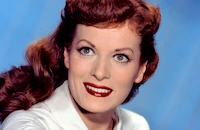
Maureen O'hara

Dick Haymes
Harry James
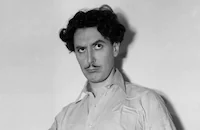
Reginald Gardiner
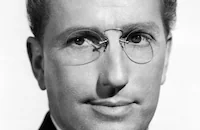
Richard Gaines
Stanley Prager
Harry James' Music Makers
B. S. Pully
Chick Chandler
Alma Kruger
Almira Sessions
Douglas Wood
Harlan Briggs
Julia Dean
Harry Hays Morgan
Dale Barringer
Eric Freeman
Charles Aaron
Ruth Costello
Dorothy Costello
Jack Scordi
Diane Ascher
Eugene Borden
Harry Seymour
Albert Morin
George Sorel
Charles Williams
Ashley Cowan
Les Clark
Jimmy Cross
Harry Depp
Ernie Adams
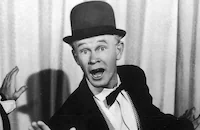
William Benedict
Walter "spec" O'donnell
Bruce Warren
Sam Mcdaniel
Jesse Graves
Wilson Benge

Lex Barker
Frank Melton
Phillip Morris
Fred Graham
Kay Connors
William Frambes
Napoleon Simpson
Esther Brodelet
Jack Barnett
Lillian Porter
Marjorie Jackson
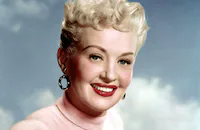
Betty Grable
Evelyn Mulhall
Crew
Harold Adamson
John Tucker Battle
Dorothy Bennett
Serge Bertensson
Arthur Berthelet
Alfred Bruzlin
Sonny Burke
David Buttolph
Edward Cronjager
Robert Ellis
Samuel Engel
Seymour Felix
Frank Gabrielson
Mack Gordon
Bert Granet
W. C. Handy
Roger Heman
Charles Henderson
Charles Henderson
Harry James
George Jessel
Natalie Kalmus
Franz Liszt
Thomas Little
Helen Logan
Herb Magidson
Matty Malneck
William May
Jimmy Mchugh
Felix Mendelssohn
Richard Mueller
Kay Nelson
Emil Newman
Lionel Newman
Ben Nye
Maurice De Packh
Edward Powell
Gene Rose
Harry Ruby
Ad Schaumer
Fred Sersen
Robert Simpson
Herbert Spencer
Marian Spitzer
Edward Stevenson
Jack Stubbs
Peter Ilyich Tchaikovksky
Urban Thielmann
Johnny Thompson
Richard Wagner
Harry Warren
Lyle Wheeler
Joseph C. Wright
Darryl F. Zanuck

Film Details
Technical Specs

Articles
Do you Love Me? -
You can see that understated charm - and take the measure of that singing talent - in the 1946 Do You Love Me, in which Haymes plays Jimmy Hale, a successful singer who woos Maureen O'Hara's Katharine "Kitten" Hilliard, a prim, bespectacled music-school dean who, after traveling to the big city, transforms herself into a desirable, sophisticated lady. Jimmy isn't the only one eager to win Katharine's affections: It turns out smooth-as-silk trumpeter and bandleader Barry Clayton (played by real-life trumpeter and bandleader Harry James) has designs on Katharine as well, even though he'd met her earlier, in her "schoolmarm" period, and insulted her roundly, claiming her blood ran cold in her veins: "If a mosquito bit her, she'd get double pneumonia," he tells a friend. Do You Love Me is a vibrant postwar entertainment whose preposterousness is part of its appeal: It's a movie clearly made for a nation desperate to get back to the business of having fun. Actor-turned-director Gregory Ratoff was the man at the helm: Throughout the 1930s, the Russian-born Ratoff (who had served in the Russian Army during World War I) had smallish roles in a number of films - among them I'm No Angel (1933), with Mae West -- often playing a "foreign" eccentric or villain. In the mid-1930s, he turned his hand to directing. One of this biggest triumphs during the period was the 1939 Intermezzo, with Leslie Howard and Ingrid Bergman. That film's success kept him busy directing movies through the 1940s, making lively, efficiently entertaining films like Do You Love Me. The reviewer for the New York Times called it "a harmless and pleasant enough musical, decked out in gorgeous Technicolor and costuming and full of tuneful songs."
Those "tuneful songs" include novelty numbers like the charmer "Moonlight Propaganda," performed by Haymes and James, along with his band. Haymes is a low-key, appealing performer, and in Do You Love Me, he's cast as the most obviously suitable suitor for O'Hara's high-spirited Katharine. (She has also left a dud of a fiancé, played by Reginald Gardiner, back home.) Still, James' Clayton, who clearly has an eye for the ladies, won't take no for an answer, repeatedly sending flowers - ferried over by embarrassed singing delivery men -- to her hotel room. As Clayton, James is handsome but wily looking, and his tendency toward womanizing is treated as a great gag, culminating, at the very end of the movie, in a surprise cameo by a very special guest: Betty Grable, to whom James was married at the time.
O'Hara, the flame-haired, Irish-born actress who'd had her initial screen success with actor Charles Laughton in the 1939 Hunchback of Notre Dame and later appeared in John Ford's Academy Award-winning 1941 How Green Was My Valley, was also a trained singer. In fact, she had always said singing was her first love. But studio brass weren't interested in those skills, and O'Hara doesn't get to sing in Do You Love Me.
But then, she really doesn't need to. You can see why O'Hara's Katharine - it's Haymes' Jimmy who insists on giving her the playful nickname "Kitten" - would have two guys chasing after her, particularly with her Technicolor-ready Titian tresses. The costume designers on Do You Love Me -- Kay Nelson, Edward Stevenson, and, most interestingly, Bonnie Cashin, who would later become a formidable force in American sportswear -- clearly had a field day dreaming up unusual tonal combinations to play up O'Hara's coloring. Most of these are combos that wouldn't work in real life - not even on the wildest pages of the J. Crew catalog - but they sizzle on the screen. In one scene, Katharine wears a sweeping, absinthe-colored dressing gown with a giant script "K" embroidered on the shoulder; in another, she dons an evening gown accessorized with a whimsical glittery headpiece that winds its way behind and beneath one ear, almost like a stylized G-clef. But the most outlandish and wonderful getup is a day outfit consisting of a fitted gabardine blouse in lilac and chartreuse, matched with a skirt of bright magenta. These are the kinds of crazy color symphonies Technicolor was made for, and O'Hara does them proud.
SOURCES:
IMDb
The New York Times
Producer: George Jessel
Director: Gregory Ratoff
Screenplay: Robert Ellis, Helen Logan, Bert Granet (story), Dorothy Bennett (additional dialogue), Frank Gabrielson (uncredited)
Cinematography: Edward Cronjager
Music: David Buttolph
Film Editing: Robert Simpson
Cast: Maureen O'Hara (Katharine "Kitten" Hilliard), Dick Haymes (Jimmy Hale), Harry James (Barry Clayton), Reginald Gardiner (Herbert Benham), Richard Gaines (Ralph Wainwright)
By Stephanie Zacharek

Do you Love Me? -
Quotes
Trivia
The fan who calls for Barry (Harry James (I)) in her car at the end. Grable and James were married at the time.
Notes
The working title of this film was Kitten on the Keys. Although most sources list the film's title with a "?", the title on the screen does not include a question mark. According to documents in the Twentieth Century-Fox Produced Scripts Collection and the Twentieth Century-Fox Records of the Legal Department at the UCLA Arts-Special Collections Library, Bert Granet wrote a treatment for the film in September 1943. The picture was originally conceived for Lynn Bari, Dick Haymes, and either the Jimmy Dorsey or Benny Goodman bands, and was to mark Perry Como's film debut. It was shot in the Spring of 1945 but was extensively revised and added to after principal photography. Certain characters, including "Artemus and Burton Hilliard" and "Emerson," played by Paul Harvey, Robert Middlemass and Charles Smith respectively did not make it into the released version. In addition, studio records suggest that composer and critic Deems Taylor was to appear in the film as himself. An examination of the script for the October 1945 revisions reveals that the appearance of a French speaking, older gentleman, who is never explained in the film, is meant to be an older version of Katherine's fiancé, Ralph, and was played by the same actor, Richard Gaines. Edward Stevenson was borrowed from RKO to design Maureen O'Hara's wardrobe. A radio version of the film, featuring Haymes, O'Hara and Barry Sullivan, was broadcast on Lux Radio Theater on December 23, 1946.














